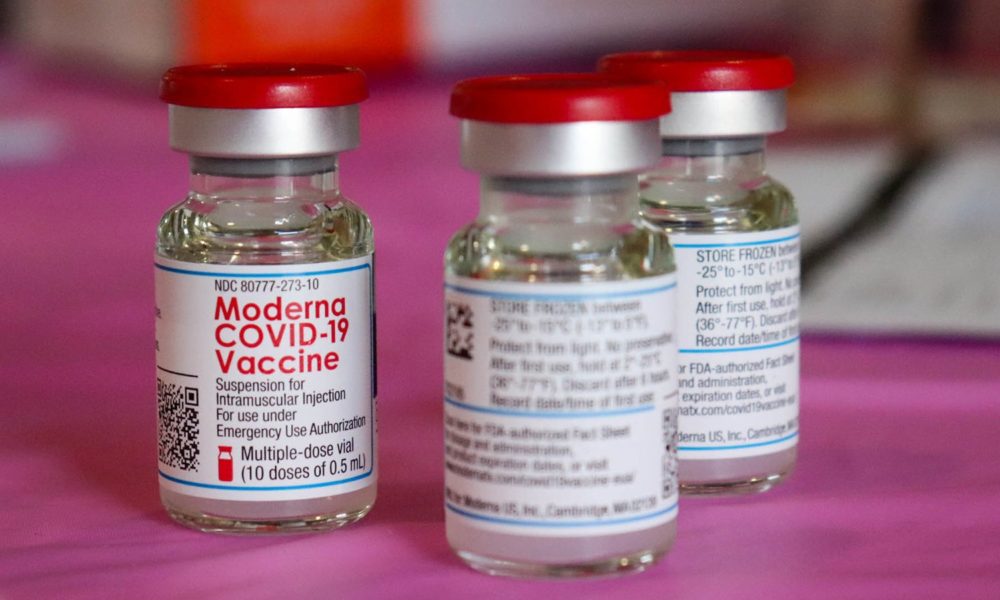Considering the gravity of this pandemic and the importance of the COVID-19 vaccines in this fight against the virus, we all desperately need access to the best information on the science of vaccines. However, information on COVID-19 vaccines from trusted sources like the Centers for Disease Control and Prevention (CDC) and the Food and Drug Administration (FDA) can sometimes be tricky to find. And other online sources or links shared on social media may contain misinformation or disinformation. Therefore, it can be surprisingly difficult to find accurate, trustworthy information on the vaccines in a simple and easy-to-understand format.
That’s why we at the Union of Concerned Scientists (UCS) – in partnership with Comunidad Latina de Vashon and Greater Cleveland Congregations – developed a new resource on the most frequently asked questions (FAQ) about COVID-19 vaccines, which is available in both English and Spanish. Our answers are informed primarily by the CDC and FDA. The FAQ presents the best available scientific information and logistical details about COVID-19 vaccines using straightforward language that the general public can understand.
Our community partners, Comunidad Latina de Vashon and Greater Cleveland Congregations, played an instrumental role in the development of this FAQ and have allowed myself and colleague Casey Kalman to present this information to over 400 members of their communities. We had numerous individuals tell us that our presentation was exceedingly beneficial, and some people even said that it helped them decide to get the vaccine.
As I conducted research for and wrote the vaccine FAQ, I learned some truly fascinating bits of information about the science behind the vaccines. Here are just three pieces of information that I found particularly interesting about the COVID-19 vaccines.
1. FDA scientists ensured that vaccine testing for safety and effectiveness was ridiculously thorough
While doing this work, I gained an even greater respect for FDA scientists and independent scientists that are advising the FDA. Even during the hostile environment of the prior administration, the FDA issued regular guidance to pharmaceutical companies developing the vaccines that required vaccines be tested using the most rigorous scientific methods. This was further confirmed by a February 2021 report by the Government Accountability Office (GAO), an independent watchdog agency, which showed that COVID-19 vaccine development followed the strict scientific protocols previously laid out by the FDA.
Not only did FDA staff confirm rigorous testing, but the data was further vetted by a team of external independent scientists. The FDA asked its Vaccines and Related Biological Products Advisory Committee to carefully analyze data on safety and effectiveness for the Pfizer, Moderna, and Johnson & Johnson (J&J) vaccines. The data analyses from the FDA’s advisory committee were incredibly thorough. In each briefing document, which numbers around 50-60 pages, the independent scientists analyzed the data from large scale clinical trials numbering 30,000 to 44,000 people. Participants in the clinical trials were monitored for eight weeks after they received the last dose to check for safety – this is in line with previous research showing that vaccine reactions tend to show up within six weeks of vaccination. These analyses of the Pfizer, Moderna, and J&J vaccine data were instrumental in the FDA’s decision to issue an emergency use authorization for each of the three vaccines and thereby approve the vaccines for use across the US.
2. Recruitment of people of color in vaccine clinical trials was of paramount importance
Medical products, like vaccines, can affect certain racial and ethnic groups differently than others. Because it is critical that vaccines are safe and effective for all people, not just some populations, it was considered essential to recruit a large number of people of color to participate in COVID-19 vaccine clinical trials. In June 2020, the FDA issued guidance on COVID-19 vaccine development in which it stated that the “FDA strongly encourages the enrollment of populations most affected by COVID-19, specifically racial and ethnic minorities.” Moderna even slowed down its vaccine trials in order to recruit additional Black, Latinx, and Indigenous participants and worked with academic scientists that had long-standing relationships with communities of color to help with this effort.
Across the Pfizer, Moderna, and J&J vaccine trials, thousands of Asian, Black, Latinx, and Indigenous individuals were included. As a person of color myself, one of the questions that definitely crossed my mind was whether there was good representation of people of color in the trials, so it was heartening to see the efforts made to recruit more people of color into the trials.
3. The way COVID-19 vaccines work is mind-blowingly interesting
I’ll link to the CDC’s great explanation and the New York Times beautiful graphical representations for a more detailed explanation for how the different vaccines work.
But I’m absolutely fascinated with the story behind messenger RNA (mRNA) vaccines. The technology was tested extensively as a vaccine for diseases like flu, Zika, and rabies starting in the 1990s but was initially considered less promising because of how easily mRNA breaks down in the body. A series of breakthroughs in the 2000s and 2010s then led mRNA vaccines to be much more stable and reliable, which then paved the way for today’s Pfizer and Moderna vaccines. Because of the incredible work of scientists solving hard problems for the last 30 years, we now have cutting-edge mRNA vaccines that are protecting the health and safety of millions of people across the world. Experts predict that in the future, mRNA technology will likely expand out to serve as a vaccine for other infectious diseases, like malaria and tuberculosis, and aid in cancer treatments.
COVID-19 vaccines will help end this pandemic
With the exception of young children, at some point this year all of us will be given the opportunity to get a COVID-19 vaccine. Whether or not you, or the people you know, decide to act on that opportunity will depend in large part on whether you have a good working knowledge on how the vaccines work, what benefits the vaccines confer to you and your loved ones, and how to obtain vaccines in your local neighborhood. Scientists, using robust scientific methodologies, have proven that the vaccines are safe and effective at protecting you from getting this deadly disease. Along with continued social distancing and mask wearing, the science is clear that vaccinations will help stop the spread of disease and get us closer to the end of the suffering the world has endured.
We hope that you find our COVID-19 vaccine FAQ helpful and informative, and that it proves to be useful to you, your family, your friends, and others in your community. As we’ve written before, one of the best ways to stop the spread of COVID-19 disinformation is to promote good, trustworthy, science-based resources, and we hope that you’ll consider our FAQ as one of those trustworthy resources. Please share far and wide and, together, we can help stop the spread of misinformation and COVID-19.

